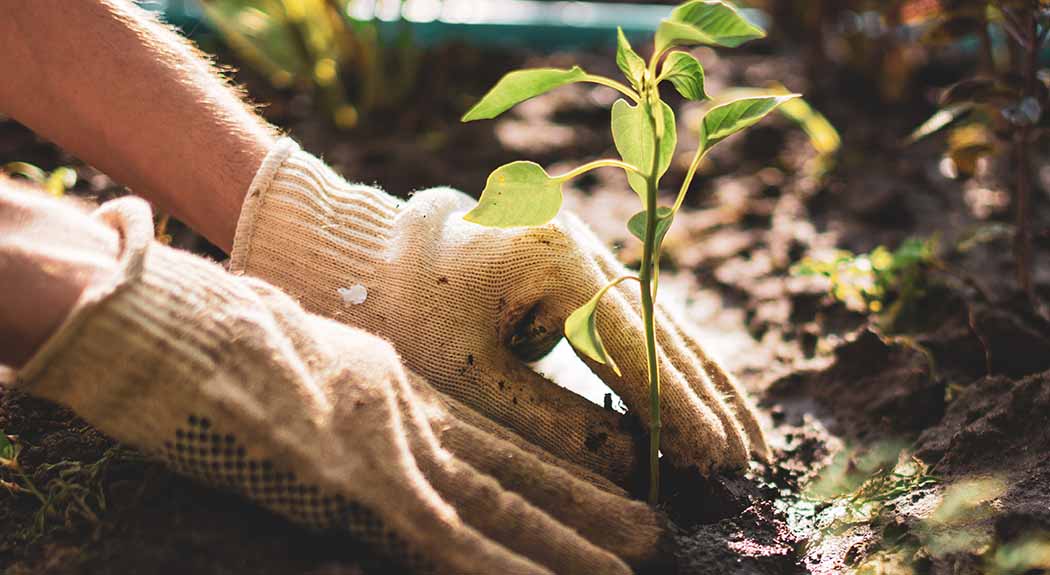Did you know that 610,000 people in the United States die of heart disease every year? That’s one in every four deaths, according to the Centers for Disease Control and Prevention (CDC). And did you know that every year about 735,000 Americans have a heart attack?
There are many factors contributing to these statistics. There are more people with high blood pressure, high cholesterol and who smoke, which are all key risks factors for heart disease. But among those are other factors like diabetes, excessive alcohol use, obesity, physical inactivity and poor diet that also take a toll.
Focusing on the last three – obesity, exercise and diet – gardening could help you tackle these risk factors in one go while engaging in an activity that just requires a little bit of patience in exchange for a healthier life.
“The trend in our society has been towards what is expedient, what is convenient, what is fast,” says Salvatore Lauria, MD, cardiologist at Anne Arundel Medical Group (AAMG) Cardiology Specialists. “Gardening provides somewhat of a counter-balance by slowing things down and getting back to what’s more natural, more organic and ultimately, healthier.”
Dr. Lauria practices the healthy lifestyle changes he preaches to his patients. He himself lives in a rural neighborhood where he grows his own produce and raises chickens. And although he also leads a busy lifestyle, he enjoys using this time to slow down and harvest healthier, fresher food.
Clean eating
When you buy frozen food or eat at restaurants regularly – especially fast-food restaurants – you end up consuming more processed foods. Yes, it’s convenient to have someone cook for us because of our busy schedules. But in doing what’s easy you pay the price of eating a lot of things that you don’t know about.
“That speaks to the benefit of growing it yourself,” says Dr. Lauria. “When you plant your own produce – such as green peppers, carrots, kale, beets and spinach – you know what you’re eating. Plus, there’s a sense of satisfaction that comes in knowing that you put all the effort into growing it yourself.”
You also get to choose the fertilizers you want to use, whether they are organic or not. When you garden, you’re in control of when to harvest your own food. Vegetables that ripen in your garden tend to have more nutrients and antioxidants compared to the ones you buy in a store.
No gym? No problem
It can be physically demanding. But between weeding, planting and harvesting, you’re getting a full-body workout and possibly getting more squatting done than at the gym, says Dr. Lauria. “Be mindful of staying well hydrated,” he adds. “But also know that just the act of gardening itself is a healthy habit to develop.” And all of this while you’re performing an activity that will further contribute to your health!
In addition, backyard gardening can inspire you to learn more about the food you eat and help you make better choices about what you put on your plate. By being more aware of your choices, you’ll likely be eating more vegetables and fruits in general.
You’ll become your family’s snack connoisseur
This is just an added bonus, really. Instead of buying snack bags at the grocery store, full of trans fat, sodium and sugar, you can turn to your very own veggies. You can dry your carrots, beets or kale and divide portions into small bags as snacks for the week.
This, in turn, can help you save money. Snacks labeled as organic or as containing less sodium tend to be more expensive. “Grab a few veggies from your backyard, dry them or bake them, bag them and you’re done,” says Dr. Lauria. “No need to keep spending money on snacks that you can make yourself at home, and you control the ingredients used.”
It sounds laborious but in reality, it’s really simple. Anyone can grow his or her own tomatoes, peppers, cucumbers and other basic kitchen crops in their backyard. Growing your own food, with no additives, and using organic practices is a healthier way to go for you and your heart, according to Dr. Lauria. In addition, it provides a healthy balance to the frenetic paced lifestyle you may sometimes lead, and it gives you the satisfaction of knowing that you put the effort into creating our own produce.
Planting crops can be done at any time, but there are fruits and vegetables that taste better when they’re in season. Here’s a list of the best crops to plant year-round, according to Maryland’s Best, a program managed by the Maryland Department of Agriculture:
- Cucumbers
- Herbs
- Lettuces
- Mushrooms
- Tomatoes
- Spinach
- Onions
- Radishes
 Salvatore Lauria, MD, is a cardiologist with Anne Arundel Medical Group (AAMG) Cardiology Specialists. To schedule an appointment, call 443-481-6700.
Salvatore Lauria, MD, is a cardiologist with Anne Arundel Medical Group (AAMG) Cardiology Specialists. To schedule an appointment, call 443-481-6700.




